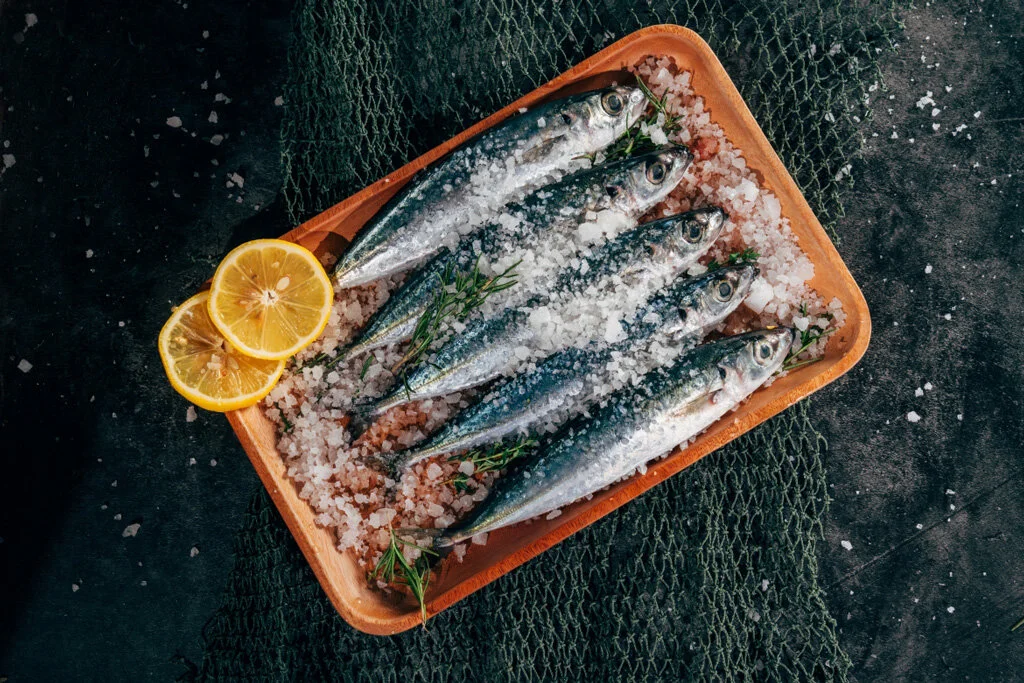Could seafood be negatively affecting our mental health?
The potential long-term effects of marine toxins and plastic pollution.
Bridget Hott
Are you an avid fish eater? If so, it might be time to reconsider your diet. Besides the obvious environmental concerns of industrial fishing, studies have been popping up more frequently about the quality of commercial species we love to consume, and it’s honestly not very appetising.
The link between the ocean and human health has been understood and studied for quite a while. Now, new developments are being made towards understanding the link between people’s gastrointestinal health and the role it plays in maintaining general wellbeing. In particular, scientists are gaining better knowledge of how the human gastrointestinal tract influences psychological disorders, like anxiety and depression. This prompts the question: could the continual pollution of the world’s oceans be contributing to a rise in psychological conditions?
How can Toxins in Fish affect Human Health?
While we may not know this answer for a few more years, studies have shown the ease in which marine pollutants, such as mercury and plastic, are able to penetrate barriers in our bodies and cause disruptions, particularly in the blood-brain barrier and placental barriers. It’s important to remember that this is still an emerging area of study and there is no definitive report directly linking marine pollutants to poor health or psychological disorders. However, the side effects of methylmercury exposure are well understood, as well as the effects of chemicals used in plastic production on human and animal health. Using this knowledge, it is fair to believe that in the near future the effects of marine pollutants on human health and psychological disorders will be revealed.
It is slightly more obvious how toxins in our seafood could be negatively affecting our general health, but how exactly would they affect our mental health?
Common fish on display at a market. Tuna contains some of the highest levels of mercury in all commercial species. Photo: Unsplash.
The composition of the human gastrointestinal tract plays a large role in regulating hormones levels and brain function. A study published in 2017 states that, “inflammation in the gut is directly linked to central nervous system disruption and severe mental illnesses including anxiety and depression.” The gut-brain-axis has been studied for many years, particularly recently in understanding where psychological disorders arise. Many studies have determined exact toxins that lead to gut disruption and unfortunately, some of them are the same chemicals found in the fish we regularly consume.
Mercury in Fish
Mercury is present in many forms, none of which have any beneficial role in the human body. Mercury enters the environment primarily through coal-combustion and industrial waste, where it then leeches into sediment and rivers though atmospheric depositions, like rain and snow, inevitably reaching the sea. Once in the ocean and consumed by fish, mercury undergoes many bacterial processes and transforms into its most poisonous form, methylmercury, now becoming six-times easier to cross blood-barriers in the human body than inorganic mercury. Through a process called bioaccumulation, methylmercury gets imbedded in the tissues of many commercially fished species, particularly Ahi Tuna and Swordfish. A study at the start of the century analysed methylmercury levels in individuals who were prominent fish eaters: 89% of the group showed elevated levels of mercury, exceeding the maximum limit set by the US FDA and the National Academy of Sciences. By lessening their fish consumption, 67 individuals were able to lower their mercury levels to safe standards.
The bioaccumulation of methylmercury in our seafood is starting to catch the attention of many scientists around the globe. Mercury, in this form, is able to cross barriers that toxins normally can’t reach, particularly the placental barrier, and causes issues all over the body. Mercury exposure is often associated with neurological distress, mood changes, and difficulty regulating emotions as well as gastrointestinal disruptions. Countless other ailments lead to or stem from chronic inflammation, a key component in the development of psychological disorders, like depression and anxiety.
Anchovies are one of the safer fish to consumer in terms of mercury exposure. Being lower on the food chain means less bioaccumulation has occurred. Photo: Unsplash.
Plastics in Fish
Have you heard that humans on average consume 5 grams of plastic per week? Unsettling, we know.
Just like mercury, plastic bioaccumulates in seafood and eventually ends up on our plates. A 2016 report found microplastics in 114 fish species, 1/3 of which are commonly consumed. While it has been stated by the UN that humans likely consume negligible amounts of plastic from fish, many scientists remain concerned about the potential side effects that haven’t manifested yet. Studies conducted between 2010 and 2013 found that 15% of sampled fish contained microplastics, and that number jumped to 33% between 2017 and 2019. If the trend continues, by 2024 we could be seeing nearly 70% contamination of microplastics in our commercial fish species.
Consumption of plastic has been repeatedly reported to create inflammation and oxidative stress in the gut, which causes irritable bowel disease, chronic inflammation, and neuro-degenerative diseases – conditions that all lead to GI tract disturbances and psychological disorders. Materials used in plastic manufacturing disrupt the endocrine system, which controls hormones that regulate processes in the body such as mood and emotion. Disruption can occur in a multitude of locations, one of which is the adrenal gland, an organ responsible for the distribution of stress hormones. Psychological disorders, like depression and anxiety, are caused by adrenal imbalances, so the more we expose our bodies to endocrine disruptors, the more likely we are to develop these conditions.
Mussels and other mollusks contain the highest levels of microplastics out of regularly consumed seafood. Photo: Unsplash.
So, What Can you do?
While a definitive link between ocean pollutants and mental health issues is yet to be determined, the presence of the components for this to occur is becoming more evident. By following the chain of toxin accumulation in fish tissue, to human consumption and the effects these pollutants have on our bodies, the connection between seafood consumption and mental health issues is likely to be exposed in the coming years. Starting today, do yourself and the ocean a favour and lower your seafood consumption.
For those of us that have the privilege of altering our diets and still getting the right nutrients our bodies need, protecting ourselves from these contaminants shouldn’t be that big of a challenge. For the 3 billion people who rely on fish as their main protein source this is slightly more concerning. This is a global issue that will require global initiatives to protect those who are most vulnerable. Together, we need to figure out how to stop the dumping of toxic waste in the seas, reduce our dependence on single-use plastics, hold industrial polluters accountable, and support ocean clean-up organisations so that everyone on our shared planet has a chance to live a healthy life.
Looking for tips for eating cleaner seafood? Click here for a guide on which fish have safe mercury levels, and how to avoid oysters, mussels, scallops, and seafood coming from areas of high pollution.
Rising Tides is a series focussing on the current threats facing our ocean, how these are being tackled and what you can do to help
IF YOU’VE ENJOYED READING THIS ARTICLE, LOOK OUT FOR MORE RISING TIDES BLOGS AND FOLLOW Bridget HERE @bhhott
Want to write for us? Check out our ‘Get Involved’ section.



